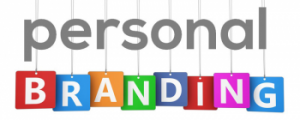You’re probably familiar with the concept of a business brand; we use it frequently when talking about influencer marketing. Most individuals are unfamiliar with the concept of “personal branding.” However, in this digital age, where everything, good and bad, lives forever on the internet, personal branding is more vital than ever. Have you ever looked up your name on Google? You may discover that other people have the same name as you. But, when you do come across pieces that reference you, do they reflect your vision for the world? Should you “modify” your online profile to make it more acceptable and to put you in a better light? Well, all these questions and more will be addressed in this article because we will be discussing personal brands, examples, tools, and all you need to know.
Personal Branding
The way you promote yourself is through your personal brand. You want the world to see you as a unique combination of skills, experience, and personality. It’s how you tell your story and how it reflects your actions, words, and attitudes, both stated and unsaid.
You use your personal branding to set yourself out from others. If done correctly, you can bind your personal branding to your firm in ways that no corporate branding can.
Your personal brand is the image that others have of you professionally. It might be a combination of how they see you in person, how the media depicts you, and the impression people make based on online information about you.
You may either ignore your personal brand and let it evolve organically, possibly chaotically, outside of your control, or you can work with it to portray yourself as the person you want to be.
In the days before the internet, your personal brand was essentially your business card. Few people would have heard of you unless you were a well-known figure in the media or a prominent face of advertising. You are significantly less anonymous in today’s extremely public environment when every tiny behavior is scrutinized at length on social media.
Personal Branding Examples
There are numerous examples of great personal branding that you may use as a guide while developing your own.
Heather Armstrong runs the website, which we mentioned before. She makes money by selling adverts on our website and creating sponsored content. In fact, your personal brand is the centre of her entire empire.
Even in the Knowledge Commerce field, many other personal brands have grown up around individual firms.
Consider Gary Vaynerchuk, or Gary Vee as he is affectionately known. He began his start in the Knowledge Commerce industry by creating wine-related vlogs. He’s now one of the world’s most successful marketers, and his enterprises are built around his own brand.
Then there’s Mark Cuban, the owner of the Dallas Mavericks, a serial entrepreneur, a billionaire, and the star of the hit reality show Shark Tank. Cuban has developed a number of companies, but his personal brand typically takes precedence. He’s recognized for his strong ideas and unwavering dedication to anything he accomplishes.
Why Would You Want a Personal Brand?
Your personal brand might be quite important to your professional success. It’s how you show yourself to current and prospective customers. It allows you to assure that people see you the way you want them to, rather than in some arbitrary, potentially harmful way.
It allows you to highlight your abilities and hobbies. Also, it makes people believe they know you better, and people have a lot more faith in someone they think they know, even if they have never met them in person.
This is especially true during election season. While many voters are interested in hearing candidates’ perspectives on matters that are important to them, others are less so. Instead, people choose a name they are familiar with. It should come as no surprise that candidates with strong personal brands, regardless of their political views or beliefs, prosper in politics. Regardless of your feelings about Donald Trump as a president, you can’t dispute that he has developed a powerful personal brand that has influenced many people to vote for him.
What Are the Benefits of Personal Branding?
Personal branding has numerous advantages. You can make crucial decisions regarding what you share and how people perceive you when you take control of the story that surrounds your online presence.
Consider your company’s brand. It should make several connections with their personal brand, but your personal brand is more about your personality, ambitions, dreams, and motivations.
In essence, you’re putting a face to your company. It’s usually a nice thing when it happens.
Many large corporations use celebrity spokespeople to help spread their messaging, as you may have observed. You may not be a celebrity, but you are a one-of-a-kind human being with fascinating experiences to tell and valuable knowledge to impart.
Keep that in mind.
With that in mind, let’s take a look at some of the most significant advantages of developing your own brand.
#1. You’re More Visible Online
When you use personal branding tools to promote yourself online, you become more accessible and visible to your target audience. People can find you with a simple Google search or through your numerous marketing methods.
When it comes to the Knowledge Commerce market, it’s difficult to exaggerate the value of visibility. You’d like people to understand why you’re qualified to teach online courses and generate other digital items for your target audience.
Many entrepreneurs are afraid of becoming more visible. They feel vulnerable and fear making a mistake that may harm their companies’ image.
Simply take it slowly. Decide what you want to share with your online audience, and remember to respect your personal and your loved ones’ boundaries.
2. You Can Leverage Your Network
You’ll establish an ever-growing network of people in your field, future clients, and existing customers as your internet brand grows. When it comes to expanding your firm, this network can be a tremendous help.
If you want to thrive in business, you may have heard that “who you know” is vital. While this isn’t totally true, having a network of individuals at your disposal can be tremendously beneficial when launching a new product or changing the course of your firm.
Furthermore, the more people who are aware of both your personal and corporate brands, the more visible you will become to your target audience. Folks in your network will share your material with their own audiences, allowing you to reach people you wouldn’t otherwise have been able to contact.
#3. You’ll Become More Identifiable in Person
Personal branding tools aren’t merely for boosting your online visibility. In addition, you’ll become more recognizable in person.
Many of our Kajabi Heroes go to live events to promote their businesses and gain new customers. If you wish to do the same, becoming more recognizable for personal branding tools can convert in-person events into superb conversion machines.
You might go to trade exhibitions, conferences, and conventions in your local or regional area. Perhaps you’ve authored a book and want to hold a signing.
In any case, becoming seen in person can help you expand your brand and increase the profitability of your company.
#4. Your Business Will Become Stronger
Your personal brand, and vice versa, can help your corporate brand. Despite the fact that they are two separate entities, they will naturally intertwine because you are in command of your company.
In essence, you have two chances to brand yourself. You may use what you’ve learned about commercial branding tools for your personal brand and avoid common pitfalls.
#5. You Can Leverage Your Brand to Build Partnerships
Partnerships are a great method for Knowledge Commerce experts to collaborate and grow their respective companies. You receive access to each other’s audiences when you collaborate on a product with another expert.
You also cut the work in half, allowing you to create more public-facing digital products. The more things you make, the more money you’ll make.
Use your personal brand to get to know other people in your field and to connect with business owners whose audiences cross with your own. That is one of the most effective methods for forming profitable collaborations.
#6. Your Online Relationships Will Flourish
Maintaining online relationships with peers and customers can be challenging, but if you have a strong personal brand, you can expect them to return to your website and other marketing platforms on a regular basis.
It’s easier to contact you now that you’re more approachable and visible online. You might not even need to go out to others to build collaborations, get new leads, and expand your company. Others will find their way to you.
#7. You Never Know What Might Happen
Serendipity can be amusing at times. You’ll build your internet personal brand with no idea what will happen. Some people prosper in the field of Knowledge Commerce, while others fade away.
You could be astonished by the opportunities that come your way if you dedicate yourself entirely to the process of personal branding tools. You’ll have to put in the effort to make yourself more visible in your online relationship, and you’ll be able to reap the benefits of your labor when opportunities arise.
#8. You’ll Build Confidence
As previously said, personal branding tools can be intimidating. When you put yourself out there online and make yourself more visible to your target audience, you may feel vulnerable.
It is, however, a healthy sort of anxiety. It suggests you’re taking a chance and attempting something new.
You may discover that your confidence grows as you become more acquainted with personal branding. You won’t be as nervous about sharing personal information with your audience, appearing on video, and other facets of online personal branding.
Furthermore, the same self-assurance can be applied to other aspects of your business.
#9. You Control Your Brand Image
Control is crucial when it comes to branding, as we’ve discussed countless times. People will form their own opinions about you if you don’t take control of your personal brand, and your brand will expand without your influence.
Please don’t let this happen.
Instead, make everything you offer your audience purposeful. Control the information you release to the public in order to maintain narrative control.
Even if you make a mistake, you are still in command. You can find out a strategy to stay in charge of your brand while navigating the future.
#10. Your Credibility Will Grow
For Knowledge Commerce experts, credibility is critical. People are more willing to invest in your digital items if you have a high level of reputation.
How Do You Establish Trustworthiness?
You provide your readers with useful, informative stuff. You use your personal brand to inform others who are curious about what you know and how you do it.
It may appear simple, but without a personal branding strategy, it might be difficult. You’ll find it easier to connect with individuals and share your knowledge with the rest of the world after you know exactly what you want to communicate with your audience.
#11. Goals Become More Achievable
It is true that developing a personal brand needs a significant amount of effort. The benefits of your labor, on the other hand, can significantly outweigh the time and effort you’ve put into your personal brand.
Your goals become significantly more attainable when others know who you are and trust your judgment. You may increase the number of things you sell, the number of visitors to your website, the number of people who attend your webinars, and the number of people who join your membership site.
Because you have a personal relationship with your customers, customer retention becomes easy. Those consumers will continue to buy your digital items because they believe in what you stand for and trust that each time you release anything new, you will give consistently valuable material.
What are the 5 A’s of Personal Branding?
Below are the 5 basic A’s of personal branding:
- Authenticity.
- Authority.
- Aspiration.
- Affinity.
- Artisanat.
How Do You Start to Build Your Personal Brand?
When developing a personal brand, it is essential to engage in activities such as introspection and self-reflection. If you want to improve the performance of your company by developing your own personal brand, the first thing you need to do is make sure that you have a solid understanding of the people you are trying to reach. At the end of the day, you want to establish a reputation as someone who cares about your existing customers as well as your potential customers and who also struggles with the same issues. You want to highlight the fact that you have a solution to at least some of these problems, as this is a key difference between you and them.
What Makes a Strong Personal Brand?
A potent personal brand is constructed using elements such as one’s skill, one’s objective, and one’s distinctive positioning through the use of an engaging brand story. Before you launch into action and begin developing content to advertise yourself, you need first unearth and bundle the information presented here.
What are the Dos and Don’ts of Branding?
Your ability to be recognized increases proportionately with the degree to which your brand is unified and stable. Be careful not to surround oneself with the wrong kinds of influential people. Do not select individuals who do not correspond with your users, who do not hold the same values as your users, or who do not make sense in the given situation. Do check to see that everyone has the same understanding of the situation.
The 7 Critical Tools for Personal Branding
One of the most crucial lessons we took away from our research was which marketing techniques have the biggest impact on a person’s personal brand. We’d have to choose our tools based on shaky anecdotal evidence, trial and error, and intuition if we didn’t have this data. But you have a better option: hard facts from a large number of real-world experts.
Here are the seven critical tools you will need to include in your personal branding strategy:
#1. A book.
You’ll need to write a book that targets your area of expertise, whether you do it yourself or hire a ghostwriter. A book is an important tool for establishing credibility. Your book might be self-published or traditionally published. Self-published books (for which you can decide the price or give them away for free) offer more flexibility than traditionally published books. In either case, you’ll need to advertise it, as even big-name publishers rely on their authors to do the majority of the work. Don’t feel obligated to read a book right away because it’s a big undertaking. However, make it a definite objective to develop one within the next few years, if not sooner.
#2. Speaking engagements
Public speaking is an important platform for building your reputation and personal brand. Audiences are predisposed to trust anyone who stands at a podium, so just getting there is half the battle.
#3. A website.
If you are part of a larger firm, you’ll want to focus first on your bio page. It should present sufficient credentials to convince people that you really know your stuff. Here are a few things it might include:
- Detailed personal bio
- Academic degrees
- Certifications
- Awards
- Publications
- Presentations
- Important projects
- Associations
- Affiliations
- Speaking videos
Once you begin cultivating a regional or national reputation, you may want to consider developing a personal website, too. You can use this site as a platform to promote your books and public speaking.
#4. A blog platform
Every expert should maintain a blog. It’s the most straightforward technique to display your knowledge. It’s also one of the simplest methods to begin establishing a fan base. When you use search engine optimization (SEO) concepts in your postings, you open up a whole new universe of potential clients who will find you through an online search for the first time (see number 6 below). If you want to disseminate your knowledge fast and widely, a blog is a must-have tool. Your blog can either be a part of your company’s website (which is preferred because it can help with SEO) or it can be a separate blog.
#5. Email marketing service.
If your blog is intended to introduce you to a large number of new people, email marketing is a great way to convert many of those newcomers into loyal fans, if not raving fans. You may attract a particular number of your blog visitors to join your mailing list by offering them the opportunity to download important educational resources such as executive guidelines and whitepapers. You may then provide a constant diet of free instructional materials to these followers, as well as extra opportunities to deepen their involvement. In the Roadmap section below, I’ll describe how it all works.
#6. Search engine optimization (SEO)
If you believe SEO has no place in your field of business, you are almost probably mistaken. Every year, an increasing number of businesses turn to the internet to discover and vet their service suppliers. But, more importantly for your ascent, Mount Expert, when confronted with a difficult business dilemma, today’s business executives naturally turn to Google. They often conduct their own study on the problem and its remedies before seeking expert assistance. Professionals use search in different scenarios to locate thought leaders in their field. SEO is a tool that links you to people who are passionate about the issues you solve. And you’d never meet 99 percent of them if you didn’t have it.
#7. A media kit.
Experts are frequently asked for biographies, speaking samples, and photographs. As a result, having those items ready to go at a moment’s notice is logical. Even better, post them on your website’s bio page so that anyone who is interested may locate them without having to ask. You’ll be delighted to have it at your fingertips every time a last-minute request comes up. Have you ever wondered what one looks like? Lee Frederiksen, Hinge’s managing partner, has put up a media kit.
Of course, this is only the tip of the iceberg. There are a plethora of tools available to help you engage your audience. Consider webinars (a hybrid of public speaking and advertising), public relations, SlideShare, video, and online analytics, to name a few. You may wish to add and test a few new tools and strategies when your personal branding plan begins to pay off.
Each of these tools has a lot to say about it. I’m afraid I won’t be able to discuss them in-depth here due to a lack of space. As a result, I recommend downloading our free book, Online Marketing for Professional Services, which covers many of these tools and how they fit into a larger marketing strategy. Don’t be put off by the fact that the book is meant for businesses; there’s enough information in there that applies to people as well. It lays out a content-based brand growth approach that is very similar to the one I explain in this roadmap. Also, make sure to look through the Additional Resources section at the bottom of this page.
Tips for Developing Your Personal Brand
#1. Figure out who you are
In order to build a personal brand that accurately reflects your personal and professional identity, you first need to know who you are. Be introspective, and create a list of your personal strengths and weaknesses. Ask yourself:
- In which areas of work do I excel?
- What motivates me?
- What characteristics have others complimented me on?
- Which projects have others had to help me with repeatedly?
- Roles seem to drain my energy.
- Which projects can I spend hours on without feeling overwhelmed or tired
If you’re having trouble answering these questions, see how your friends, family, and coworkers would define you. You may select how to effectively brand yourself once you’re more aware of the various aspects of your personality.
Keep in mind that many people are hesitant to choose a specialization since they don’t want to be limited. Recognize that, like many corporate brands, your personal brand will evolve as your career progresses. The ideal technique is to pick a certain area to concentrate on and let it evolve over time.
#2. Determine what you want to be known for
Your personal brand is more than a reflection of who you are now; it’s a map for where you want to go in the future. Gresh recommends examining your strengths and weaknesses in relation to the industry or career you wish to break into next, in addition to understanding your current abilities and competencies.
You’ll discover the abilities and attributes that distinguish you, as well as the areas where you need to improve or learn new information in order to progress. Forecasting where you want to be in five or ten years, as well as the qualities you want to be known for, can help you figure out what measures you need to take to get there.
#3. Define your audience
You must first determine who you are aiming to target before you begin developing your own brand. Is it other thought leaders in the industry? A specific employee at a certain firm? Recruiters? The earlier you define your audience, the easier it will be to construct your tale because you’ll have a better idea of what kind of story you need to tell (and where you need to tell it.)
If you want to reach out to hiring managers and recruiters, for example, you may start by creating or upgrading your LinkedIn page. Why? Because 92 percent of recruiters use social media to locate top prospects, with 87 percent of them using LinkedIn.
If you’re a graphic designer looking to impress current clients and attract new ones, on the other hand, you might want to tell your narrative through a personal website or portfolio, where you can better express your many skills.
#4. Research your desired industry and follow the experts
Gresh suggests accumulating research on experts in such roles as you begin to sketch out the careers you want.
“Find out who the thought leaders are in whatever sector you’re interested in,” he advises, “and don’t just follow them.” “Look them up on the internet to see whether they have blogs or other places where they share their ideas.” Look for successful people and analyze what they’re doing. Imitate them, then outdo yourself.”
Your goal in developing a personal brand is to stand out, but you can’t get there without first assessing who’s already there.
#5. Ask for informational interviews
Consider reaching out to these people and asking for an informational interview as you begin to compile a list of organizations you want to work for and industry leaders you like.
“They only take 20 minutes, but they’re quite valuable,” Gresh explains. “Don’t be scared to approach someone you’d like to learn more from. You’d be astonished at how generous and sincere people are.”
When you meet with these people, ask them questions that will help you learn more about your chosen field, such as:
- How did you break into the industry?
- What steps would you take if you were to make the transition all over again?
- How do you see the industry evolving?
- How do you stay up-to-date with industry trends?
- Are there any professional or trade associations I should join?
Informational interviews, according to Gresh, provide an added benefit: “You’re learning about what it takes to go into the profession, but you’re also sharing a little bit about yourself in the course of this interaction.” What you’re doing is establishing your reputation.”
Although a job may not be on the line in one of these interviews, it may be in the future, and you want that employer to think of you when he or she is imagining the ideal candidate.
#6. Prepare an elevator pitch
Spend some time developing an elevator pitch—a 30- to 60-second story about who you are—as you begin to define your personal brand. Having an elevator pitch prepared makes it simple to communicate what you do and where you’re going (or would like to go) in your career, whether you’re attending a networking event or an informal party.
Frank Cutitta, head of the Center for Global Branding and a Northeastern University graduate professor who teaches a personal branding course, says, “You need to come up with really short, concise things to say stories to tell” that frame your traits in the correct light.
Focus on a few crucial things to mention in your elevator pitch to keep it short. This could mean you’re seeking a new job, have expertise in a specific field, or have lately enhanced the value of your present department or firm.
#7. Embrace networking
It’s critical to network consistently (and effectively) to expand your professional circle while you develop your ideal personal brand. Attend formal and casual networking events to meet peers and industry, thought leaders.
The more connections you build and the more value you can deliver in your encounters, the more likely your personal brand will become known. Because networking accounts for 85 percent of all job openings, attending these events on a regular basis will help you not only grow your brand but also improve your career.
Don’t be afraid to ask fellow guests to meet up for an educational interview or a casual coffee talk after the event. Remember, if you don’t get a chance to meet up at the event, send an email or connect on LinkedIn to start a dialogue.
#8. Ask for recommendations
One of the simplest and most successful ways to define your personal brand is to have current and previous coworkers and bosses endorse you. This allows people to articulate your value for you. You should grow your own reviews in the form of recommendations, just as a corporation may create customer reviews and testimonials for use in sales and marketing collateral.
LinkedIn is an excellent site to seek endorsements because these suggestions are likely to capture the attention of potential employers. However, don’t forget to ask those endorsing you to serve as an actual reference during your job search, making sure they’re willing to speak with a potential employer or write a genuine letter of recommendation if necessary.
Don’t know who to ask? Former supervisors who closely mentored you are great, but other connections, such as professors and leaders of organizations you belong to, can also craft good recommendations.
#9. Grow your online presence
Making sure your online presence is engaging to hiring managers, coworkers, and others even if you’re not looking for work—is one of the most crucial components of personal branding.
Because there are so many various social media platforms accessible today, your online presence will most certainly vary based on the channel you choose. While your story should be consistent across all platforms, knowing where your target audience is most likely to go will help you focus your efforts on conveying your best story there.
Additionally, if you want one of your sites or profiles to be only for friends and family, change your privacy settings to ensure that potential employers don’t come across any material that could jeopardize your job search.
What is the Power of a Personal Brand?
A person’s personal brand is comprised of their one-of-a-kind set of abilities, experiences, and personality attributes that are intended to be presented to the rest of the world. It’s how you communicate your own personal story, impact how the public sees your competence in your field, boost your credibility, and set yourself out from the rest of the pack.
Why are Introverts So Powerful?
Introverted leaders frequently delegate authority to their teams and encourage others to take the spotlight. The vast majority of introverts do not seek the limelight or a substantial amount of attention, and as a result, these individuals are more likely to promote the acknowledgment of their coworkers and direct reports. Introverts have a natural advantage when it comes to possessing this one-of-a-kind skill, which many other people lack.
Does Everyone Have a Personal Brand?
A personal brand is something that you have regardless of who you are or what you are doing at this point in your life. Personal branding has long been viewed as nothing more than blatant self-promotion that is done in order to sell items; nevertheless, every individual, including yourself, possesses a personal brand. What other people think of you can be summed up in the phrase “personal brand.”
FAQs
What makes a good personal brand?
“A strong personal brand is cohesive, clear, consistent, and aims to serve a specific audience. A personal brand is important for an entrepreneur because it’s the best way to share your authentic message and attract YOUR specific tribe!”
How do you describe your personal brand?
A personal brand statement is 1-3 sentences that explain what you do and why you are unique in your field. It sums up your experience, your skills, and your passion so that people can easily understand who you are and what you offer.
What are the 4 steps of branding?
If you are part of a marketing team tasked with building your company’s brand, you can follow these four steps:
- Determine your target audience.
- Position your product and business.
- Define your company’s personality.
- Choose a logo and slogan.






